Inflation Predicted to Rise Steeply
on consumer goods in the coming year
Prepare for a significant surge in inflation this year, particularly around the holiday season. This is a direct result of the anticipated rise in consumer goods prices.
Yep - you can blame President Biden.
Joe Biden announced in May that Washington would enact punitive tariffs of $18 billion on Chinese goods, including electric vehicles, battery parts, and solar cells.
In April, Biden also threatened to triple a 7.5% tariff rate on China steel and raise the aluminum tariffs to 25%.
Exporters from China are front-loading shipments for the holiday season due to worries about US tariff increases, as well as because of the prolonged “Red Sea disruptions.”
These exporters are said to be in a near panic over the proposed tariffs as well as the increased shipping rates, according to the SCMP news.
For instance, The Shanghai Containerized Freight Index, a gauge of container shipping rates, increased 12.6% in the last week.
Shipping freight rates are said to have increased by over 300% since March, and the “uneven distribution of containers at major ports” worldwide has added to the disruption. Of course, the Baltimore port closure caused severe chaos; I cannot find estimates concerning the disruption and inflationary impact, but that impact is anticipated to continue far into the future.
But back to the issue of “Red Sea Disruptions” - a topic that seems to be suppressed on the Google-net news site.
WASHINGTON (AP) — Car factories have idled in Belgium and Germany. Spring fashion lines are delayed at a popular British department store. A Maryland company that makes hospital supplies doesn’t know when to expect parts from Asia.
Attacks on ships in the Red Sea are delivering another shock to global trade, coming on top of pandemic-related logjams at ports and Russia’s invasion of Ukraine.
Houthi rebels in Yemen, seeking to stop Israel’s offensive against Hamas in Gaza, are attacking cargo ships plying the waters connecting Asia with Europe and the United States, forcing traffic away from the Suez Canal and around the tip of Africa. The disruption is causing delays and driving up costs — at a time when the world has yet to vanquish a resurgence of inflation.
“What’s happened right now is short-term chaos, and chaos leads to increased costs. Every ship that gets rerouted has 10,000 containers on it. It’s a lot of emails and phone calls getting made to replan each of those container journeys.”
-Ryan Petersen, CEO of the supply chain management company Flexport
So as the Israeli war drags on, chaos in shipping lines (and lanes) in the Red Sea will continue.
Of course, the war with Russia has also had a huge economic impact, causing inflation to rise substantially. As long as Biden remains in power, that war will continue indefinitely, unless either side resorts to more serious weaponry, potentially deployment of tactical nukes - about which we heard many rumors when we were in Geneva, and none of those were encouraging. The rumors all centered around deployment this fall- right before the Presidential election! Talk about an October surprise!
AP/ A senior ally of Russian President Vladimir Putin says Russia is not bluffing about using tactical nuclear weapons against Ukraine and warned that the conflict could spill over into other countries.
Dmitry Medvedev, the deputy chair of the Security Council of Russia, made the comments after President Biden quietly authorized Kyiv to launch U.S.-supplied weapons at military targets just over the border in Russia that are supporting an offensive against the northeastern Ukrainian city of Kharkiv.
"This is, alas, neither intimidation nor bluffing," Medvedev said Friday, speaking on the potential to use strategic nuclear weapons.
All in all, the impact of these events on the ability to curb USA inflationary pressures looks pretty dire. But with talk of Russia or Ukraine/NATO moving to nuclear options, inflation may prove to be the least of our worries. Apparently, the German government has now authorized military action on Russian soil, or so I have been told.
The hits just keep coming. It's clearly boom times for the military-industrial, biodefense-industrial, and censorship-industrial complex matrices. At least in the short term. After the election, things could get more…. complicated.
Biden (or whoever is in charge in the executive branch) has clearly proven to be the most inept and dangerous president in modern history.
US economist Stephen Roach (the former chair of Morgan Stanley Asia) stated this week while in Bejing that the US’ recent tariff hikes on Chinese goods were a “blunder” and the result of election-year politics might drag the United States and China into a “new forever war” on trade.
There are dark economic times ahead for the United States. So batten down the hatches, full speed ahead, prepare for the worst, and hope for the best.


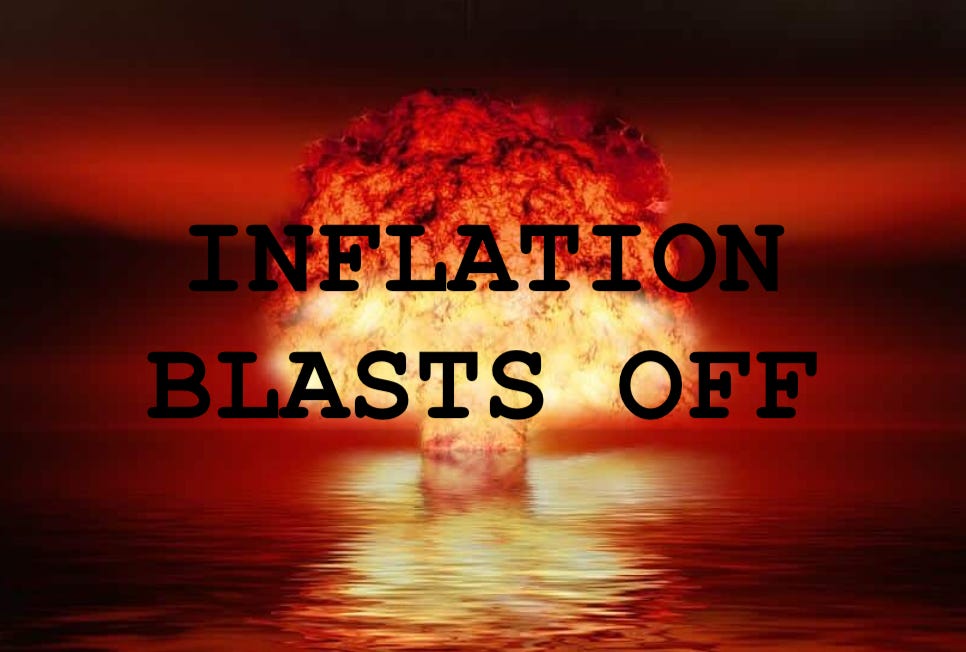
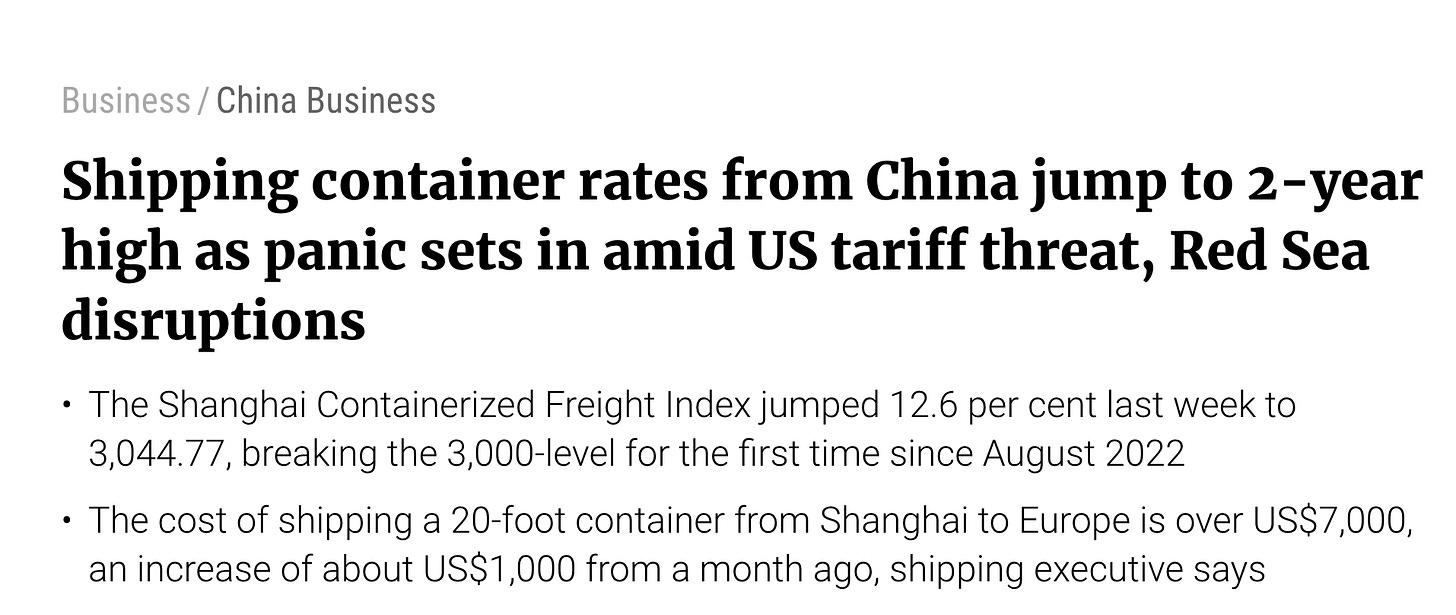
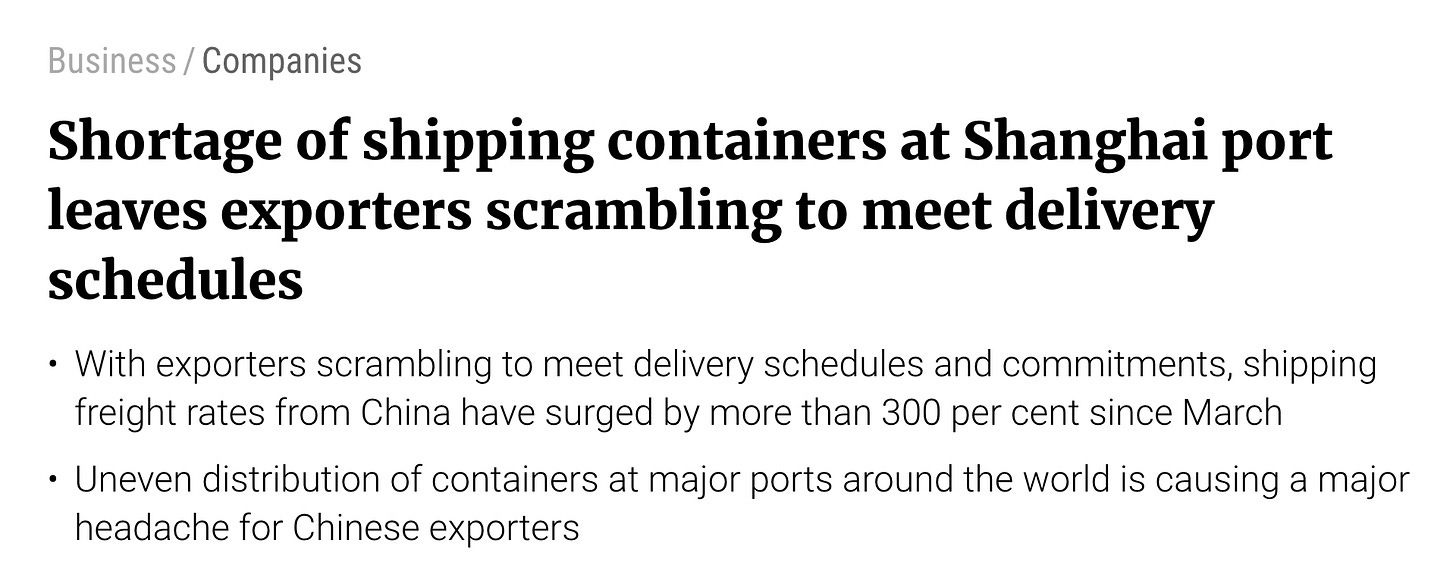
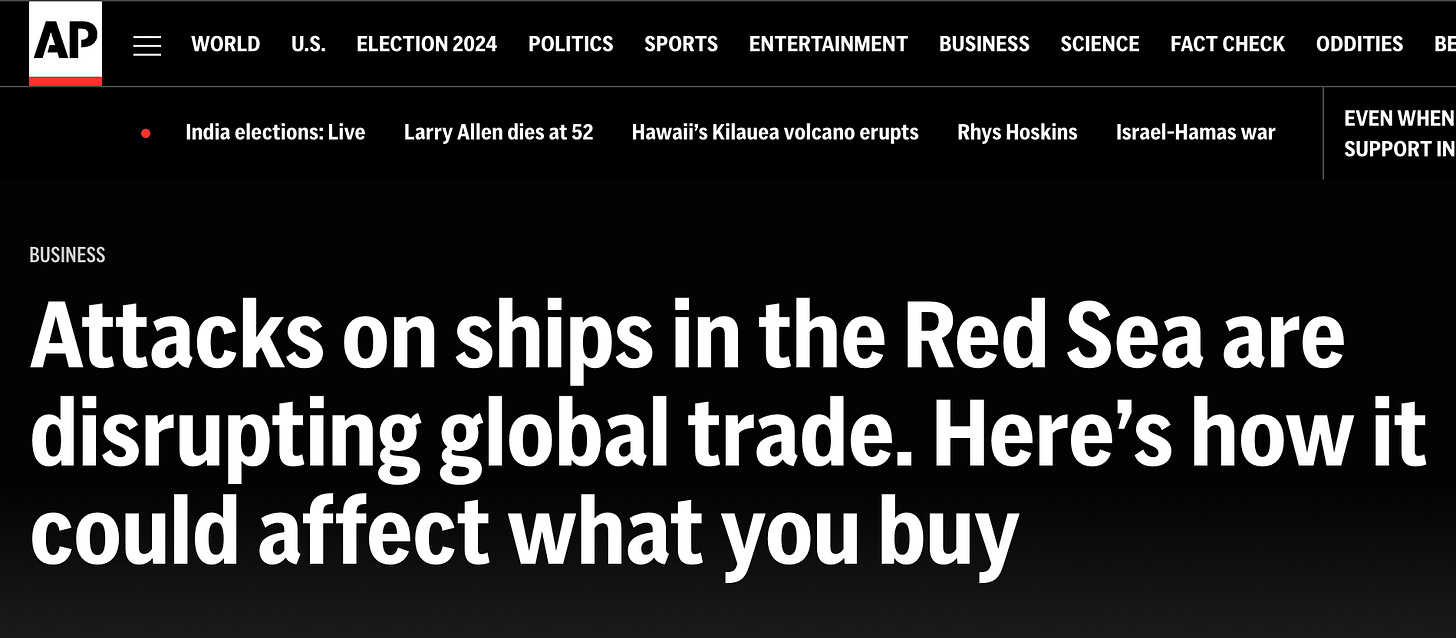
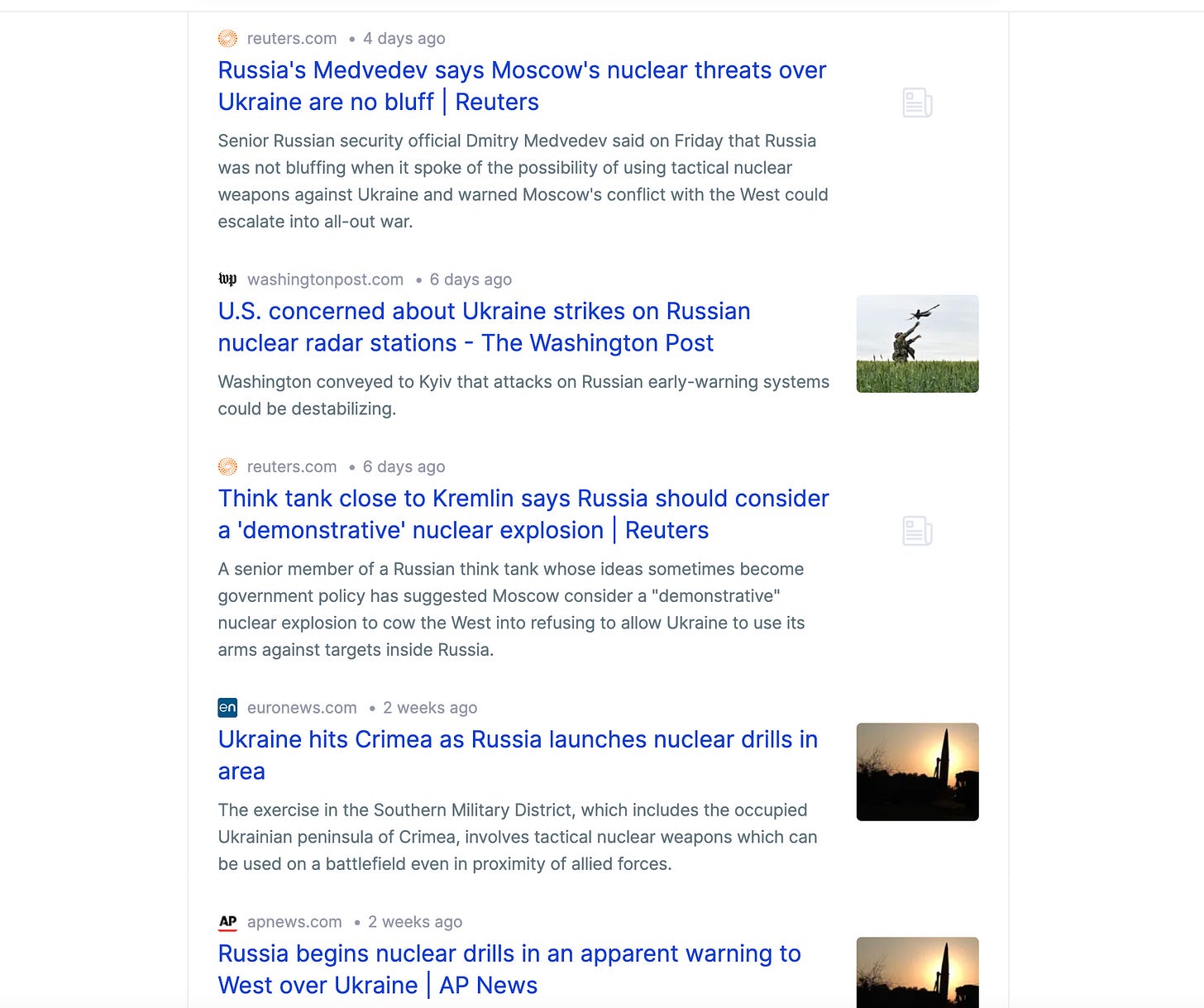
I have edited this substack to add a voiceover.
Maybe globalism wasn't such a great idea after all. Chinese stuff is cheap for a reason. How about bringing manufacturing of QUALITY merchandise (and pharmaceuticals) back to the USA?